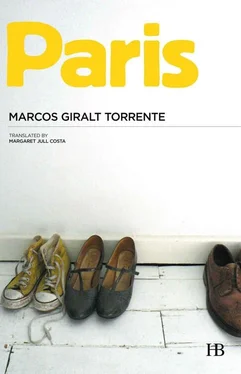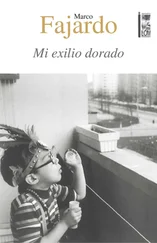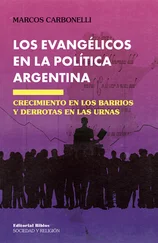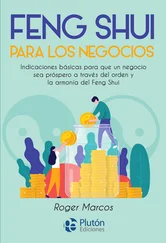Marcos Giralt Torrente - Paris
Здесь есть возможность читать онлайн «Marcos Giralt Torrente - Paris» весь текст электронной книги совершенно бесплатно (целиком полную версию без сокращений). В некоторых случаях можно слушать аудио, скачать через торрент в формате fb2 и присутствует краткое содержание. Год выпуска: 2014, ISBN: 2014, Издательство: Hispabooks, Жанр: Современная проза, на английском языке. Описание произведения, (предисловие) а так же отзывы посетителей доступны на портале библиотеки ЛибКат.
- Название:Paris
- Автор:
- Издательство:Hispabooks
- Жанр:
- Год:2014
- ISBN:9788494228452
- Рейтинг книги:5 / 5. Голосов: 1
-
Избранное:Добавить в избранное
- Отзывы:
-
Ваша оценка:
- 100
- 1
- 2
- 3
- 4
- 5
Paris: краткое содержание, описание и аннотация
Предлагаем к чтению аннотацию, описание, краткое содержание или предисловие (зависит от того, что написал сам автор книги «Paris»). Если вы не нашли необходимую информацию о книге — напишите в комментариях, мы постараемся отыскать её.
Paris — читать онлайн бесплатно полную книгу (весь текст) целиком
Ниже представлен текст книги, разбитый по страницам. Система сохранения места последней прочитанной страницы, позволяет с удобством читать онлайн бесплатно книгу «Paris», без необходимости каждый раз заново искать на чём Вы остановились. Поставьте закладку, и сможете в любой момент перейти на страницу, на которой закончили чтение.
Интервал:
Закладка:
As I say, these are my thoughts now. I have no actual proof. During the period of calm that began with the trip to Toledo, I did not once witness anything that my father would not have wanted me to see, not once did he do anything that could have hurt my mother or for which he should have felt guilty. And yet my impression, despite everything, is that he had a great fear of disappointing my mother and that whenever he did anything that went against her wishes, it troubled him deeply and he hated himself for having done it or for not having taken her wishes into consideration.
I was different.
I was a concession.
But what did my mother think? Did she see him as I do now, or was she genuinely pleased and happy with his behavior? Would she have been happy had she suspected what I know now? I imagine not, although that is pure speculation. With my mother, as I’ve said, we talked about facts, not feelings, not how she had been or felt, not about her frustrations or joys or hopes.
Only once did we come close to talking about him. It was many years after that trip to Toledo, closer to the time I’m writing now than to then. My father had vanished from our lives, we knew nothing about him and assumed he would not come back. The tunnel of forgetting in which she now lives was still a long way off. She could have had no idea of what was about to happen to her, but her body must have known in some way, because something was telling her to say goodbye, urging her to take stock. We no longer lived together, and often, when I went to see her, we would talk about my childhood years. These were not conversations intended to dig up painful memories, nothing that would cause us to reflect. We amused ourselves with old anecdotes, brief, insignificant snapshots that served to illustrate past joys, those dead times that, while they’re happening, we never imagine thinking about in the future and that, when that future arrives and becomes the present, are nonetheless the most palpable representation of what was transitory and has now passed. That day was an exception, however tiny. We were recalling a period of my childhood when I’d had to spend three months in bed with rheumatic fever. At one point, my mother asked how I used to feel in the mornings, when she’d gone off to work and left me alone, and then she asked if I felt lonely being an only child. Then she fell silent for a few seconds and — deliberately avoiding looking at me, as if she were going to broach a subject she found it hard to talk about — she asked if I would have preferred it if my father had stayed with us. There was no need for her to specify when, we both knew perfectly well.
“Would you have liked him to stay with us and to have had a normal father?” she said.
“Would you ?” I asked in turn, so as not to have to answer.
My mother blushed slightly and said nothing, as if she weren’t quite clear about her own feelings or feared disappointing me with her response.
“And now?” I asked, seeing how long she was taking to reply and trying to help her out of that awkward silence. “Would you have preferred him to have stayed?”
Despite this attempt to help, my mother remained silent for a few more moments, then, after shooting me a troubled, inquisitive look, like someone preparing to tell another person some fact that will give him power over them and wanting to first reassure themselves that their confession will not be used against them, she said, “No, not now.”
I could have asked, Not even if he’d been a real father ? but I didn’t.
XIII
The first dark cloud arrived, suddenly and unexpectedly, after two months during which my father went out to work every day and it seemed that no obstacle would appear that might cause him to stray from his chosen path. I don’t know the exact chain of events — how my mother found out, if she found out by chance or if she first became suspicious then stumbled on some clue and decided to gather the necessary evidence that would confirm her suspicions. The only thing I really know, the one thing that has remained and that I can speak about without the mediation of other people’s words or someone else’s gaze directing mine, is that when it happened, she did not suffer in silence or wait patiently for the denouement . She confronted my father and, in order not to delay matters further, didn’t even wait for a moment when I would be out of the apartment.
It happened one afternoon when I came back from school after having been out all day. That morning over breakfast, everything had followed the by then familiar script, whose broad outlines, though subject to a few variations, were firmly established — the same jokes, the same gestures, the same relaxed or sleepy or inexpressive looks on our respective faces, the same questions, the same answers. My father, who was always up first, would be impeccably turned out, with either a tie or scarf around his neck, my mother would be still in her dressing gown or already dressed, while I, as usual, would be halfway through the process, putting on my shoes, tucking my shirt into my gray flannelette pants while I hurriedly drank a cup of hot chocolate and ate my toast and jelly, either strawberry, blackberry, or lemon, depending on what my mother gave me.
I arrived home feeling excited and contented, eager to rid myself of my backpack full of books. I walked up the four flights of stairs, and the first thing I noticed was the darkness; there was no light on in the entryway, or in the hall, either, and a second later, as I closed the front door, I heard a murmur of conversation, too loud and agitated, coming from the hallway area connecting the bedrooms and the kitchen. My initial impulse was to walk straight past and go to my room without being seen, to allow my presence to become known little by little, not suddenly. However, as I passed the kitchen, where I now realized the voices were coming from, I could not resist peering in, almost without thinking. I did so timidly, it’s true, without speaking or fully opening the door. I’ll never forget what I saw, it’s one of those moments that remain fixed in the memory and become an obligatory reference point for a whole period of our lives. My father stood with his back resting against the sink, his legs at a slight angle with his torso, forming a diagonal with the floor, although his back remained erect; he was clearly very close to losing his cool, but not entirely. The impression he gave was of someone behaving as if the fence penning him in did not exist. He was obviously very upset and made no attempt to hide this, only to disguise it, as if what he felt were not guilt but indignation. He kept his eyes fixed on the floor, his arms behind him, determinedly gripping the sink. However, that very determination revealed a desire to reproduce the gesture of someone who, though powerless, is certainly not someone who has been caught out, as if his affected gesture were the product of resignation rather than dejection or surrender. He didn’t speak, he didn’t defend himself, but before he noticed me, he gave a couple of short, nasal grunts, followed by a scornful backward movement of the head, like the silent rebuttal of someone faced either by a very serious or a totally unjustified accusation. The rather unconvincing result was ambiguous, and this might very well have had the effect my father was intending, had it not been for the presence of my mother at the white, marble-topped table where we ate breakfast and sometimes dinner and where she was now seated immediately opposite my father and sideways to me. Her mere presence was enough to negate my father’s whole performance, it was far better than any accusatory words. At the moment when I peered around the door, she was looking at my father, and her gaze seemed to contain all the dismay and concentrated disillusion in the world. She was hunched over the table, and her posture, one arm hanging by her side and one hand glumly clutching her head, expressed both despair and weariness. Hers was an angry weariness, a robust weariness in which there was no hint of surrender but rather patience, not defeat or paralyzing despair but quiet determination. She was silent, as if she had just asked a question and was waiting for an answer she knew would not be forthcoming.
Читать дальшеИнтервал:
Закладка:
Похожие книги на «Paris»
Представляем Вашему вниманию похожие книги на «Paris» списком для выбора. Мы отобрали схожую по названию и смыслу литературу в надежде предоставить читателям больше вариантов отыскать новые, интересные, ещё непрочитанные произведения.
Обсуждение, отзывы о книге «Paris» и просто собственные мнения читателей. Оставьте ваши комментарии, напишите, что Вы думаете о произведении, его смысле или главных героях. Укажите что конкретно понравилось, а что нет, и почему Вы так считаете.












